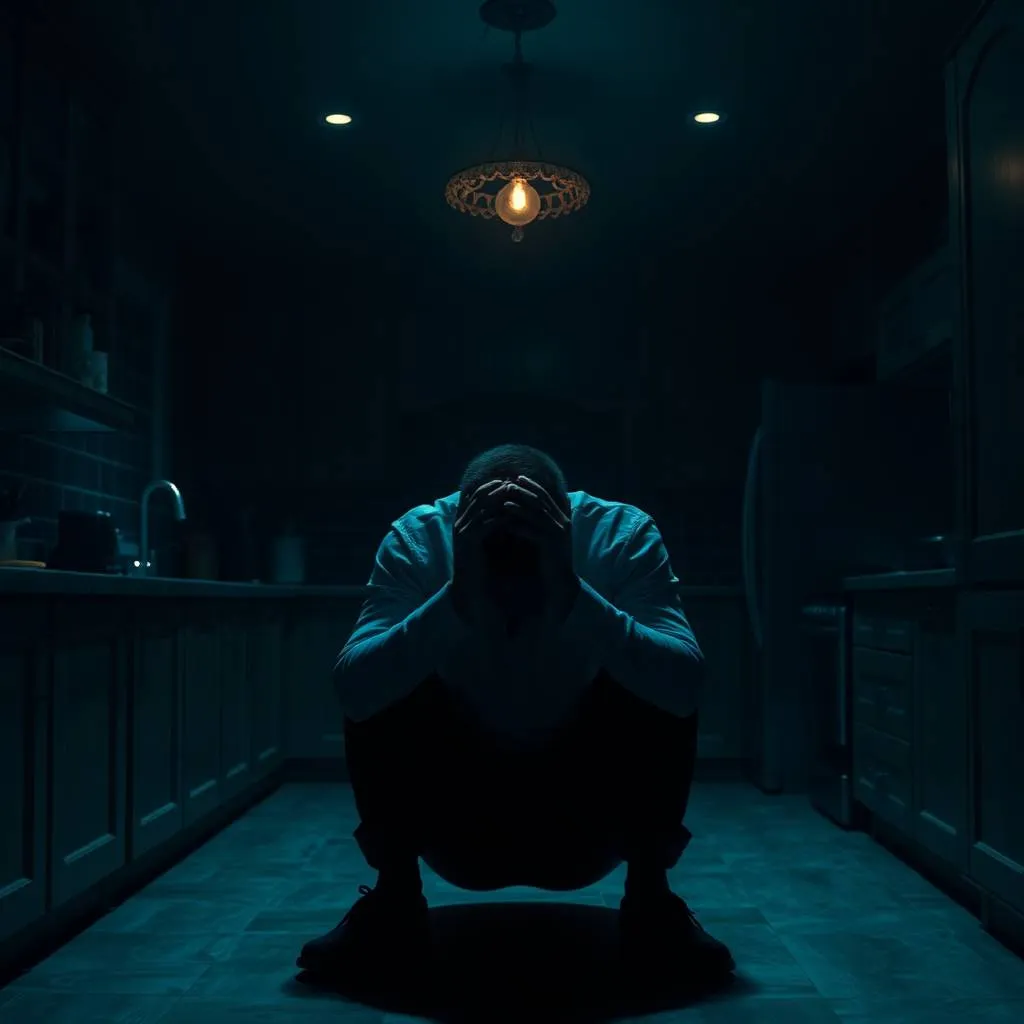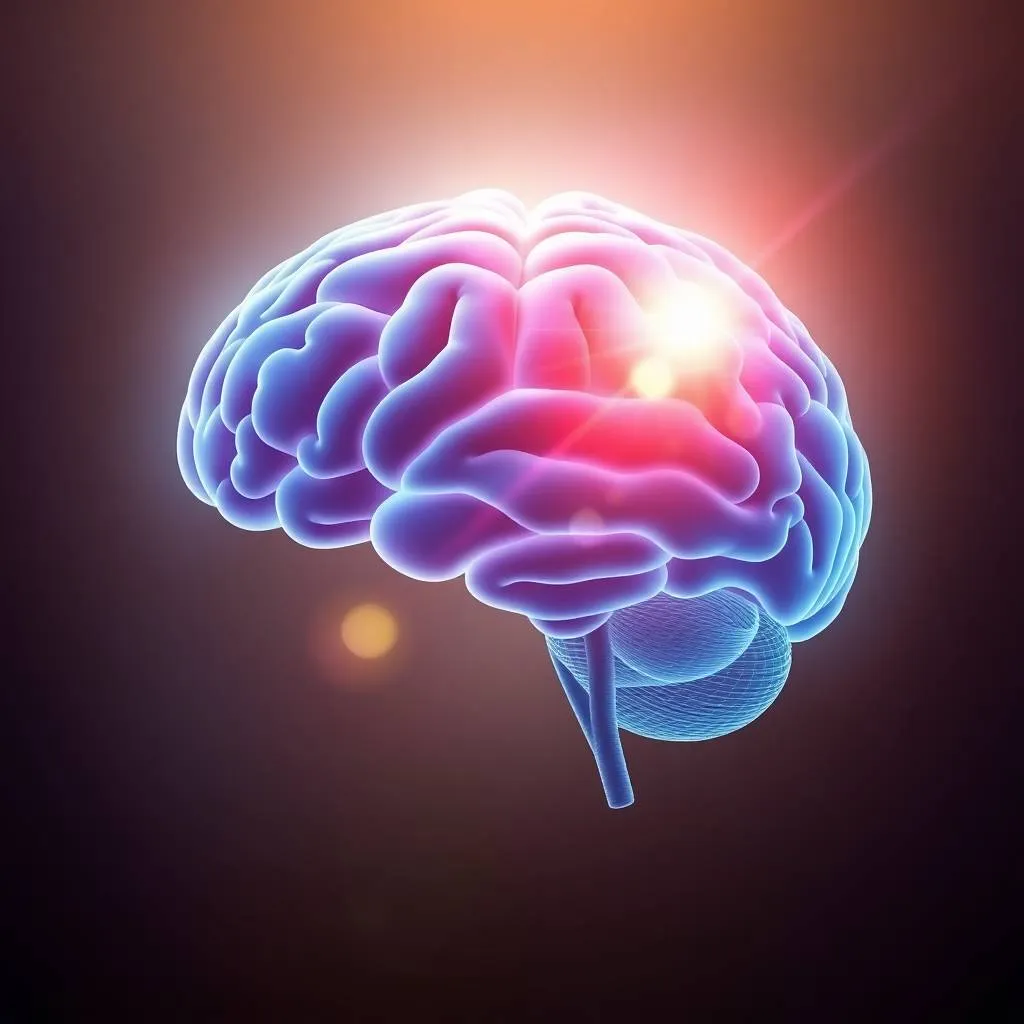The Invisible Burden Men Carry
Many men shoulder a weight no one can see. This is my story of feeling that weight, setting it down, and how golf helped me find my way back to purpose, clarity, and joy. This is about the invisible burden men carry and how you can finally set it down.

When the Weight Became Too Much
The monitor beeped in the dark. Numbers falling. My newborn son’s oxygen slipping lower and lower. We had already raced down the mountain roads once, praying we weren’t too late. Now it was happening again.
My wife sat silent in the backseat, eyes fixed on our baby’s chest rising and falling. Our mountain home had always been my safe place. That night it felt too far from hospitals. Too far from help. Too far from peace.
That was when I felt it—the invisible burden men carry. It wasn’t made of leather or canvas. It was made of fear and guilt and pressure. Fear that my son might not make it. Guilt that my daughter was struggling. Pressure to hold it all together for everyone. Once it landed, I couldn’t set it down.

My Breaking Point
The hospital trips. The carbon monoxide scare. My daughter asking to live closer to her mom. Every moment added more weight. One night I finally said what I was afraid to say: “What if we sold the house and moved?”
It felt like failure, like admitting I wasn’t enough. But it became the bravest step I could take. Leaving the mountains hurt. It meant letting go of the life I thought I was supposed to build and facing my doubts about being a good father and partner. It also meant choosing to move forward instead of dragging the invisible burden men carry until it broke me.

How Invisible Stress Erodes You
Stress doesn’t just live in your mind. It seeps into your body and into your home. It drains your energy until you wake up tired. It scatters your focus until your thoughts won’t stay put. It kills your patience and dulls your drive. It pushes you away from the people you love most. When you carry the invisible burden men carry for too long, everything feels heavier.
Harvard Health explains how chronic stress overloads the prefrontal cortex and overstimulates the amygdala—hurting focus, decision-making, and self-control. Read more.
The American Psychological Association details how long-term stress disrupts emotional regulation and impulse control. Read more.
UCLA research shows that simply putting feelings into words can calm the amygdala and reduce emotional intensity. Read more.

What It Feels Like to Set Down the Invisible Burden Men Carry
Fast forward to a different chapter. It’s one in the morning in St Andrews, Scotland. I slip into the cold October air with a cup of coffee in one hand and my clubs over my shoulder. The streets are quiet. The Old Course waits ahead.
As the sun lifts over the North Sea, the sky turns pink and gold. I stand with strangers who feel like brothers. We trade stories, laugh in the cold, and wait for the clubhouse doors to open. When I step onto the first tee, I feel something I haven’t in years: light.
No invisible burden. No crushing weight. Just gratitude, a steady breath, and the sense that I am exactly where I am meant to be. My family cheers when I sink the final putt on eighteen. I walk off the green carrying pride instead of fear. That is what it feels like when the invisible burden men carry finally lifts.

How a Mental Caddie Helps
Even the best golfers don’t walk the course alone. A caddie helps you see what you can’t—the wind, the slope, the smarter shot. He reminds you to breathe when the round starts to slip. That is my role as a Men’s Mental Caddie.
I don’t fix you. You’re not broken. We name the hidden weights that have been draining you. We find tools that work in your real life. We map the course ahead so you can stop just reacting and start building something you’re proud of. We strengthen your mental game so when storms come, you bend but don’t break. This is how we put down the invisible burden men carry together.
Skills like mindfulness and problem-solving are linked to lower stress and anxiety. APA: Stress in America.
A clear sense of purpose supports better health and resilience. NIA: Purpose and Health.

Want more tools you can use today? Read our guide on mindful golf habits and learn how small practices reduce stress on and off the course. Also meet Cam on the About page.
Your Next Round
I have carried the invisible burden men carry. I have felt fear in the dark and doubt in the quiet. I have also stood on the eighteenth green at St Andrews feeling light, present, and proud. You don’t have to drag your burden alone.
Imagine waking up rested instead of bracing for the day. Driving to work with a clear mind instead of white-knuckled stress. Laughing with your kids instead of snapping. Feeling connected to your purpose again.
If you are ready to breathe again, I invite you to a free First Tee Discovery Session. No pressure. No judgment. Just a safe place to talk about what is weighing you down and how to lighten it.

Prefer to start with a read? Visit the Golf Ball Wisdom home page for more articles and resources.
FAQ: Men’s Mental Health & The Invisible Burden
How do I know if I am carrying an invisible burden?
If you often feel exhausted, distracted, short-tempered, or disconnected—even when nothing looks “wrong”—you may be carrying more than you realize. Naming the invisible burden men carry is the first step.
Why don’t men talk about their struggles?
Many of us learned to equate strength with silence. Bottling emotions increases stress, strains relationships, and keeps you from healing.
How does golf help with mental health?
Golf builds patience, presence, and resilience. It creates space to reflect, connect, and rebuild confidence—on and off the course.
What happens in a First Tee Discovery Session?
It is a relaxed conversation about what is weighing you down, what matters most, and how to start lightening the load. No pressure—just support.
References
Harvard Health Publishing. Stress and the Brain. Link
American Psychological Association. Stress Effects on the Body. Link
UCLA Newsroom. Putting Feelings Into Words Helps. Link
National Institute on Aging. Why Having a Sense of Purpose Could Help You Live Longer. Link

